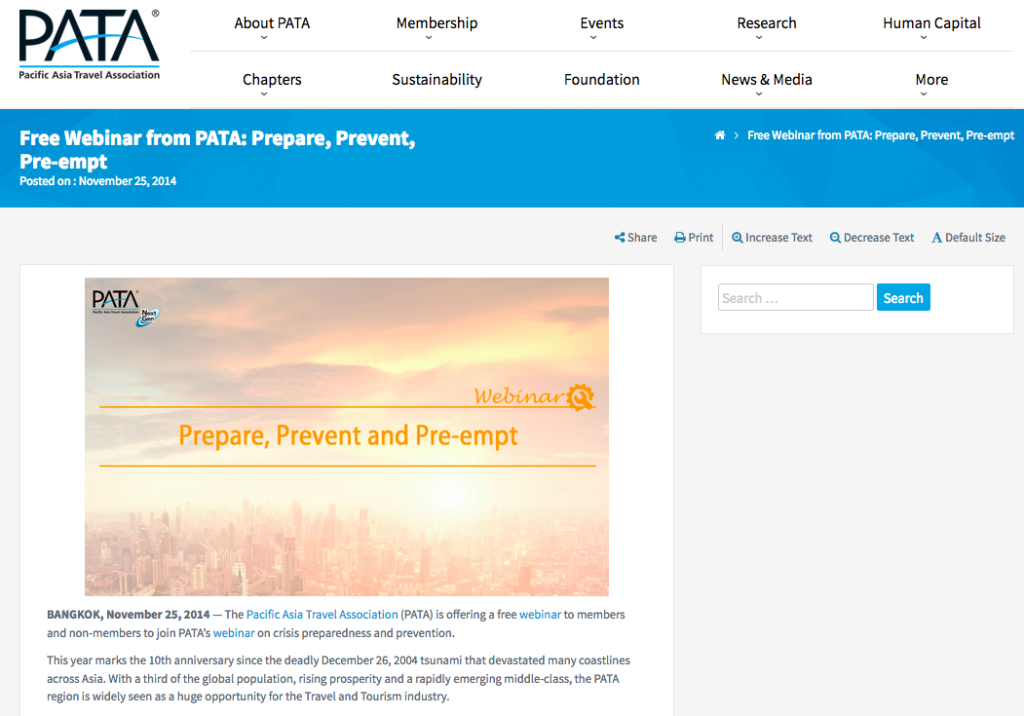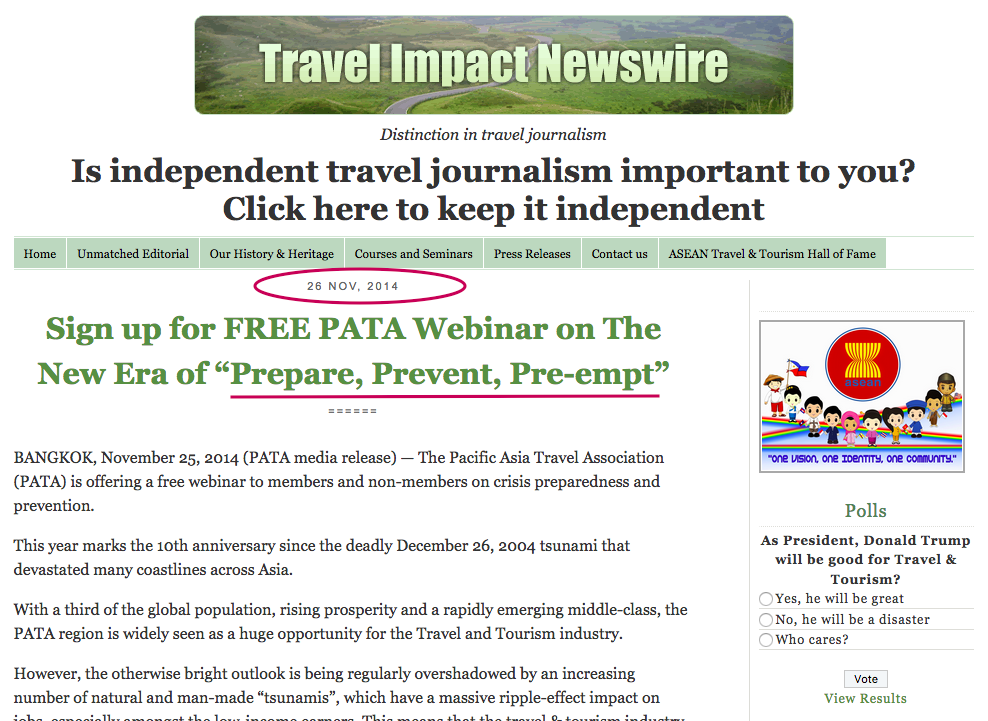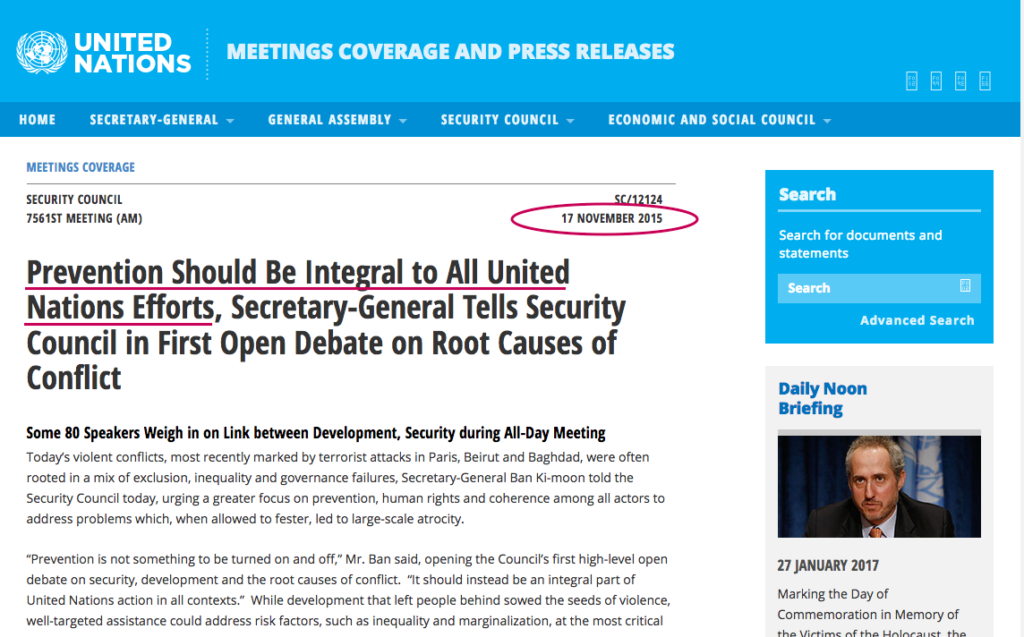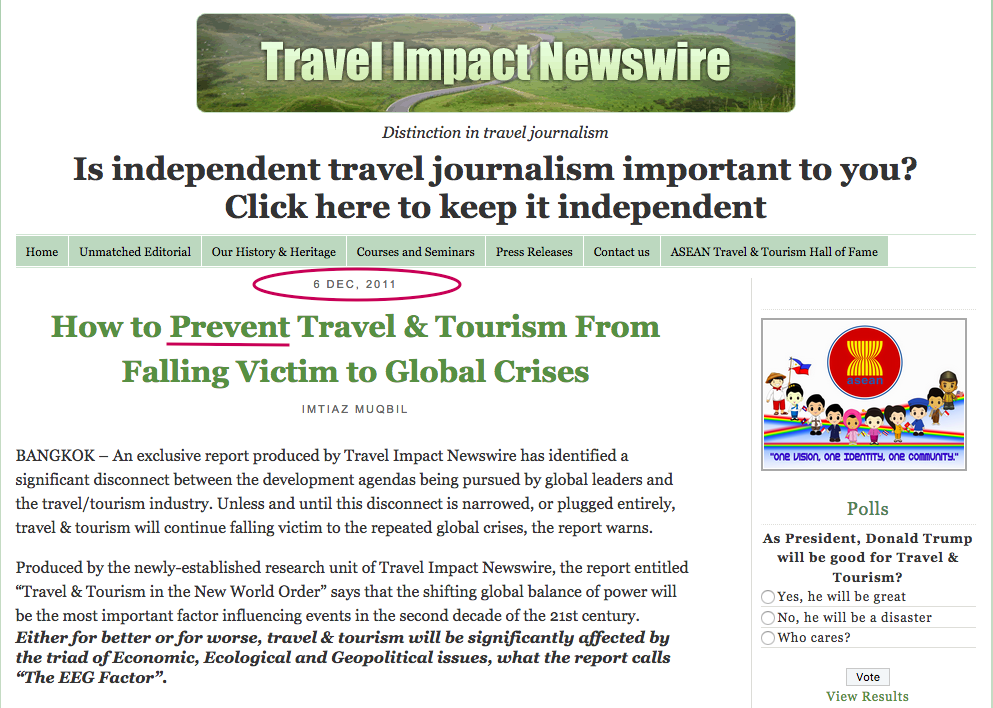
29 Jan, 2017
Most Accurate Forecasts in the History of Travel & Tourism (1)
Bangkok – In my 35 years of covering the global travel and tourism industry, I have reported on numerous crises. Here are the four most important ones:
1) In the 1980s I covered the first global AIDS crisis, which began in Thailand. As the virus spread like wildfire, the over-arching preventive advice was to practice safe sex. This meant everything from using condoms to not having multiple partners. The shock-horror media coverage scared a lot of people into doing exactly that, and helped bring the pandemic gradually under control. Prevention was critical to that effort. Had it not become the order of the day, the Thai tourism industry would have been devastated.
2) In 1997, exactly 20 years ago, I covered the Asian economic crisis, which also began in Thailand. This was the result of a country living well beyond its means after being hoaxed into perceiving itself as one of the four “Asian Tigers”. After the Jewish currency speculator George Soros blew away the baht and other Asian currencies, one of the most important actions taken by Asia-Pacific central bankers was to set up preventive measures in the form of financial early warning systems. This meant transparency, information exchange systems and strict fiscal controls to ensure that regional economies would never again come under currency attacks. These early-warnings have worked; there has never been an Asia-Pacific financial crisis since.
3) In 2004, I covered the devastating tsunami which struck Aceh, Phuket, Sri Lanka, and many other parts of the Indian Ocean. Nothing can prevent the seismic undersea earthquakes that trigger a tsunami. What can be prevented is the devastating loss of life it can cause. Hence, right after the December 2004 tsunami, satellite-based systems were put into place to provide early warnings of future tsunamis. All potential danger zones across the Indian Ocean now have safety signage to indicate escape routes. Again, prevention rather than cure.
4) In the health & wellness sector, one of the fastest-growing segments of travel and tourism, prevention is the over-arching dictum. Those who want to live long and be healthy know that it is far cheaper and better to prevent sicknesses in the first place. That means exercise, balanced diet, meditation, low-stress — a combination of physical, mental, spiritual and social lifestyle habits to prevent rather than cure.
If that simple rule applies in all the above examples, it applies equally well in the geopolitical sector. The sorry state of the world today is the direct result of shunning that basic common-sense approach.
As always, travel and tourism remains a follower rather than a leader, preferring to duck potentially controversial areas for fear of upsetting governments. Those days are nearing an end. The head-in-the-sand attitude is no longer sustainable.
The price the industry is paying is becoming just as high as what an individual pays for shunning it in real life.
And the longer the delay, the worse it gets.
As the following images prove, I have been at the forefront of calls for travel & tourism CEOs to learn the lessons of history and put prevention above cure. Let the record show that our supposedly visionary thinkers and thought leaders ignored the early warnings. They preferred “crisis management” rather than “prevention.”
With a maniac ensconced in the White House, it’s on the verge of becoming “too late.”
I hate to say it, but I told you so…

This webinar entitled “Prepare, Prevent and Pre-empt” was conceptualised by Imtiaz Muqbil, Executive Editor, Travel Impact Newswire, and launched in cooperation with PATA in December 2014. It was the first such webinar ever held in the global travel & tourism industry. Click on the image to read the full text of the PATA marketing announcement.

This was the announcement for the webinar made via the Travel Impact Newswire website in November 2014

It was in November 2015, one year after the PATA webinar, that the United Nations system began to mainstream a culture of prevention by focussing on the root causes of conflict.

In January 2017, after the new UN Secretary General took office, he made crisis prevention his top priority, along with restoring trust.

It was in fact much earlier, way back in December 2011, that Imtiaz Muqbil first flagged the need for crisis prevention with a report entitled Travel & Tourism in the New World Order.” 2011 marked the 10th anniversary of the 9/11 terrorist attacks and the first year of the second decade of this millennium. It was clear even then that the global situation was heading downhill. In their speeches at the 2011 UN General Assembly session, many global leaders sounded an early warning. Our visionary travel & tourism CEOs ignored them all.



Liked this article? Share it!